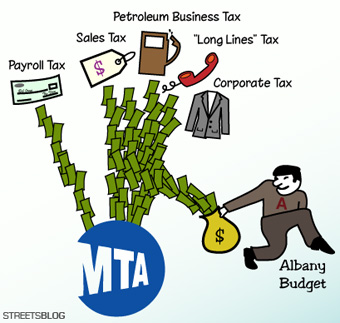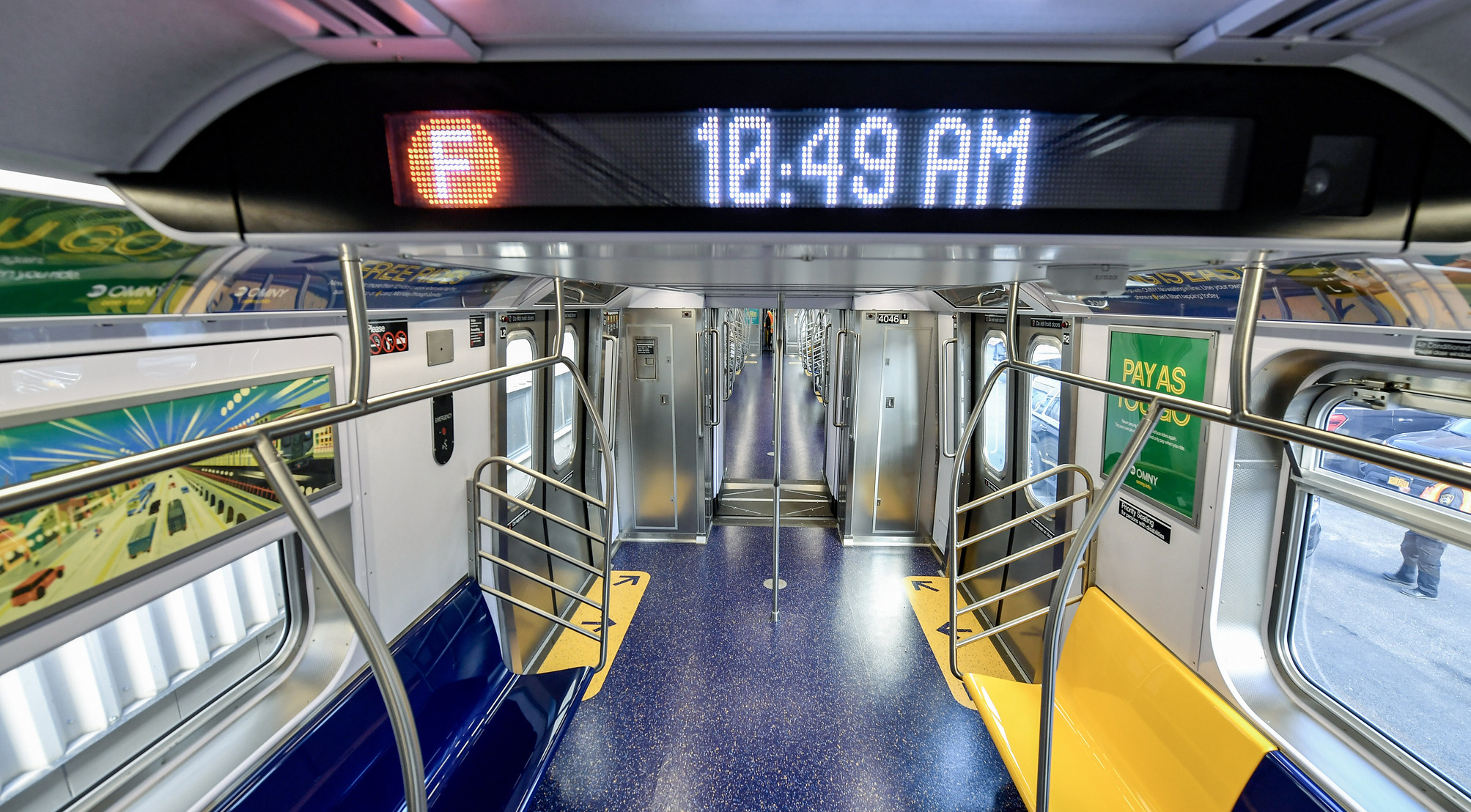Last week, the MTA announced it lost another $16.7 million to an Albany raid [PDF]. Because of lower-than-expected federal assistance for Medicaid, Albany instituted an across-the-board budget sweep of 1.1 percent, cutting state spending and also siphoning off theoretically separate revenue streams dedicated to specific programs and agencies, like the MTA. It's a reminder that the state's budget crisis is dragging the MTA and New York City transit riders down with it.

The $16.7 million raid, which will ultimately fall on straphangers in the form of worse service or higher fares, was the final domino to fall in a chain of events leading back to Washington and a program called Federal Medical Assistance Percentage, or FMAP. The feds originally passed FMAP in the 2008 stimulus package to relieve the burden of Medicaid on struggling state governments. Though the federal government extended FMAP in August, it did so at a less generous level than before. Money that states expected to come in suddenly wasn't there.
In New York, that meant a hole of around $280 million, according to budget office spokesman Erik Kriss. In response, the legislature authorized a single across-the-board budget sweep large enough to balance the state's books. Not including a few exemptions written into the law by the legislature, that came out to 1.1 percent, said Kriss. For the MTA, he explained, that meant taking $14.6 million from contributions raised entirely from dedicated transit taxes, as well as smaller cuts to Long Island Bus funding and "MTA Aid Trust Account Reductions."
The damage to transit would have been far worse if it weren't for a small provision slipped into the language of the bill. Though most of the exemptions in the budget sweep were required by law, one of only a handful of discretionary exemptions was the payroll mobility tax, which raises over $1 billion a year for the MTA. Some legislator (or legislators) saved the MTA millions by negotiating that exemption. Lawmakers could have also done the same for other dedicated MTA taxes, but chose not to.
So Albany's desperate need for cash has once again led it to raid the MTA. Perhaps it's time to recognize that the way things stand, the separation between the MTA budget and the state budget is largely a fiction. Albany is using the MTA's dedicated revenue streams -- and those of other "independent" agencies -- to keep a structurally unbalanced budget appear afloat via short-term fiscal tricks.
The problem was laid out extremely well last April by state Comptroller Tom DiNapoli's report, "New York's Deficit Shuffle" [PDF]. For fiscal year 2009-2010, he noted, the state's financial plan projected more than $1.7 billion in dedicated funds would be swept into the state's general fund. Writes DiNapoli:
In this fiscal shell game, money is shuffled among hundreds of accounts, creating funding shortfalls in some dedicated funds, hiding deficits in others and using excess revenue in still others to mask General Fund spending growth. This “deficit shuffle” reduces budget transparency, creates funding instability for critical State programs and allows the State to avoid making the difficult decisions needed to effectively align spending with available revenue. Furthermore, it creates a disincentive to agencies to cut costs, because savings in special revenue accounts are simply swept into the General Fund.
Sound familiar?
That last sentence is particularly important for the MTA as it moves forward with its cost-cutting plans. Even if it somehow manages to wring enough efficiencies out of its operations to balance its budget, unless overall state finances return to health as well, those savings just become a juicy target for new state raids. Similarly, though New York City's contributions to the MTA are at historic lows, it won't do much good for the city to restore transit funding to its rightful levels if that just results in an equivalent MTA revenue sweep by the state.
The state budget has an $8.2 billion projected budget deficit next year, according to WNYC. It's quite likely that $16.7 million from the MTA is just the beginning.





